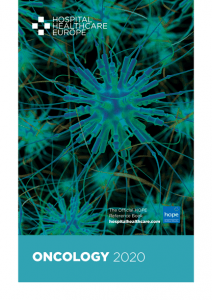Professor Javier Cortes tells Hospital Healthcare Europe how the pandemic has impacted provision of breast cancer services at the IOB Institute of Oncology
How has the continuum of care and throughput been impacted by the pandemic?
Well, I think that’s clear, at least in Spain and in our hospital, but I guess also in very many other countries, that existing and new patients have experienced delayed assessments, basically because the majority of the facilities were committed to dealing with the pandemic and patients with COVID-19. This is why the prognosis of these patients will be impacted.
Also we have observed that, these six months after the start of the pandemic, that some patients have been diagnosed with stage two and stage three disease, instead of stage one and stage three, so their prognosis is worse.
What new protocols or guidelines were deployed to protect patients and clinicians during the pandemic?
We did not implement many new guidelines and protocols. Sometimes common sense is the best thing to employ.
For example, what is very clear is that, if a patient or a person is suspected as having COVID-19, they have a different treatment procedure and pathway. They are not diagnosed or treated in the same locations as the general population, with facilities specifically dedicated to this.
In addition, for any patient who starts a new chemotherapy strategy, or needs surgery, we first have to be sure that the virus is not present. Also, we have modified some of the chemotherapy protocols. For example, we have tried to decrease the use of three-weekly docetaxel or even three-weekly anthracyclines, and we use more and more weekly paclitaxel. Moreover, we perform breath analysis every week to be sure that the patient does not have lymphopaenia.
Finally, when we have to use anthracyclines, we prefer to use them in combination with growth factors.
During the pandemic, how, if at all, was new or existing technology employed or adopted?
So, I think that here we have different situations: that is, is regarding physicians, continuing medical locations, and meetings. Clearly digital platforms and telemedicine are being employed to much greater levels, and
I do not remember the last time we had face-to-face meetings.
However, at least in breast cancer, we must not forget that physical examination is vital.
This is why in general we would prefer to see patients in person if possible, although we understand that some patients prefer not to come to the Centre. For these patients, we try to use telemedicine as best possible, but the most important aspect, which is the physical examination, is lacking.
How would you summarise the impact of the pandemic and what are the key learnings?
I think, in general, that we have learnt a lot over these last six months. I would say that the pandemic has taught us that face-to-face meetings are not always required, and virtual platforms, telemedicine and mobile imaging facilities could be implemented more widely in the future. I also think that large scientific meetings and Congresses will continue to be delivered successfully via virtual platforms and face-to-face meetings might be organised less in future.
However, I feel that it is very important that telemedicine does not replace classical medicine. In my opinion, the face-to-face meetings with the patients, and being able to engage with them as human beings is more successful for both those in our care and us as clinicians.
Of course, the technology will always improve, and I think it will be used more and more, but again, not to the detriment of face-to-face meetings, at least in the breast cancer arena.
How quickly do you anticipate regaining momentum post-pandemic?
This is a very difficult question; I would love to know the answer! I think that this will depend on the pandemic situation globally. It will depend on treatments, it will depend on signs, so I think that’s going to be lower than expected, and I think that the situation will remain the same for at least the next 6–10 months. I hope that after next summer, the summer of 2021, we will be able to start to regain normality. I pray that that will happen.
Javier Cortes MD PhD
Head, Breast Cancer Program, IOB Institute of Oncology, Madrid
& Barcelona, Spain





